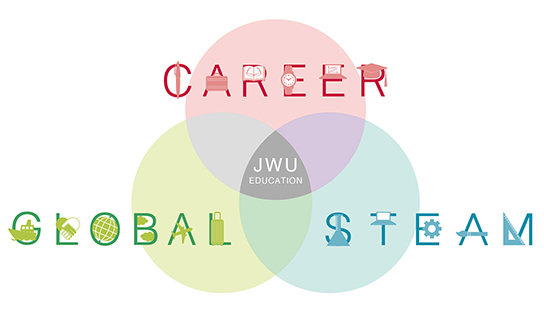To become a specialist in food who can conduct scientific study of food and playing an active role in food-related companies and educational fields
The Food Science Major offers a curriculum that allows students to acquire knowledge and skills related to “food” through lectures, experiments, and practical training. The curriculum is designed to prepare students for a broad range of career paths in food-related fields, and provides the foundation to become active as school teachers (home economics) or in food-related research and development. The Department trains students to become specialists in the science of food by considering nutrition and lifestyles while taking into account the dietary habits of modern people and social issues.
Features of the Department
Comprehensive study on food-related issues centered on three fields
In addition to a well-balanced curriculum of "food science," " science of cooking," and "nutrition science," students learn scientifically about a variety of topics such as characteristics of food materials, production/processing/storage, food culture, and food coordination. In the first and second years, many experiments and practical classes are offered for students to acquire basic knowledge and skills. In the third and fourth years specialized subjects are offered.
Cultivating the ability to identify and solve food-related issues
We guide students to make plans and solve food-related issues on their own while taking into account the dietary habits of modern people and social issues. We provide education that enables students to fully demonstrate their capabilities in fields such as graduate school, food development, and research in the future.
Expanding career paths by obtaining food-related qualifications
In the future, students are encouraged to work in development and research at food-related businesses, teach home economics at junior high and high schools, and challenge qualifications such as food specialist.
The four years of study at the Department of Food and Nutrition (Food Science Major)
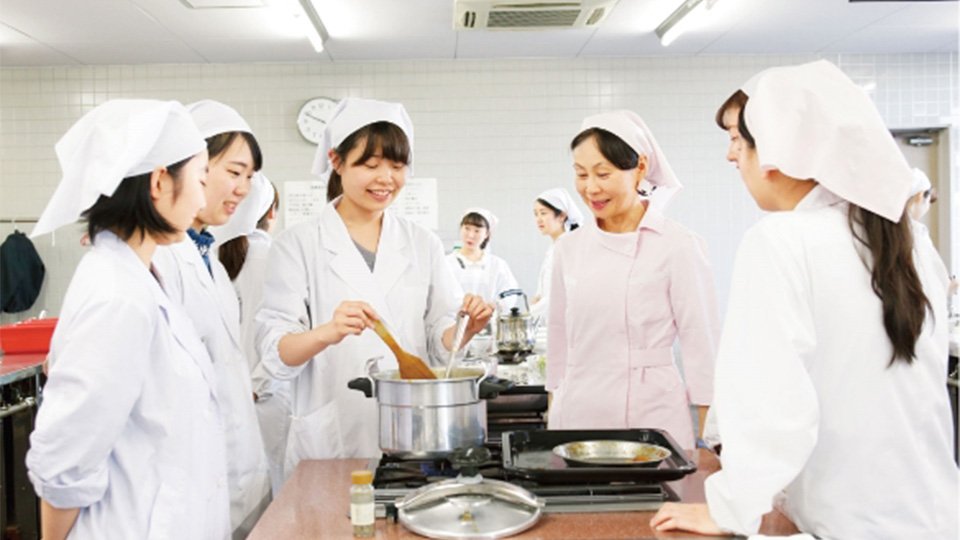
First year: Gaining basic knowledge in three food-related fields
Students will learn the basics of the three fields of food science, nutrition science and cookery science. In addition, students take subjects to obtain a food specialist qualification.
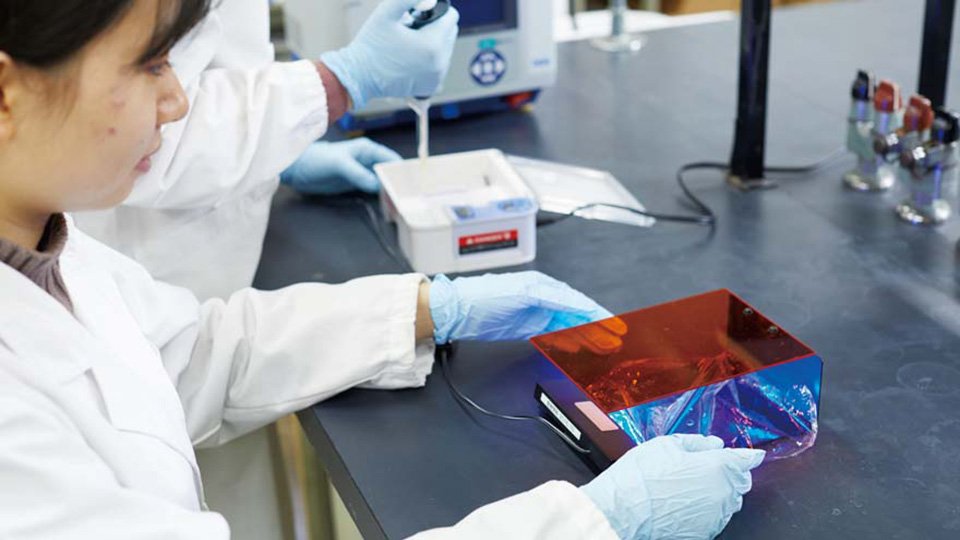
Second year: Selecting and studying a specialized field of interest
Students will decide which of the three fields of study they wish to focus on (food science, nutrition science or cookery science), which they learned the basics of in the first year, and select and take subjects accordingly.
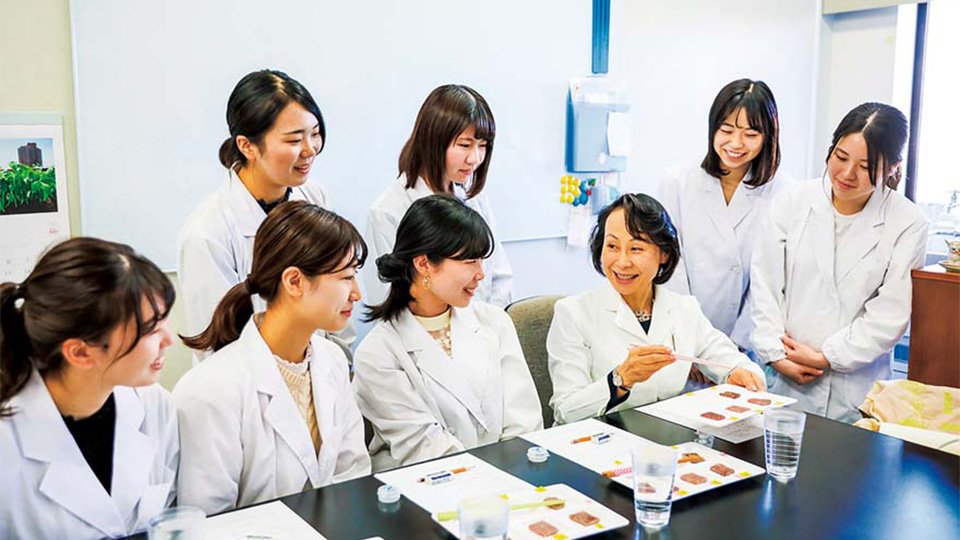
Third year: Applying acquired knowledge to related fields and beginning basic graduation research
Students will further hone their expertise by working on basic graduation research while applying knowledge about food science, nutrition science or cookery science to related fields.
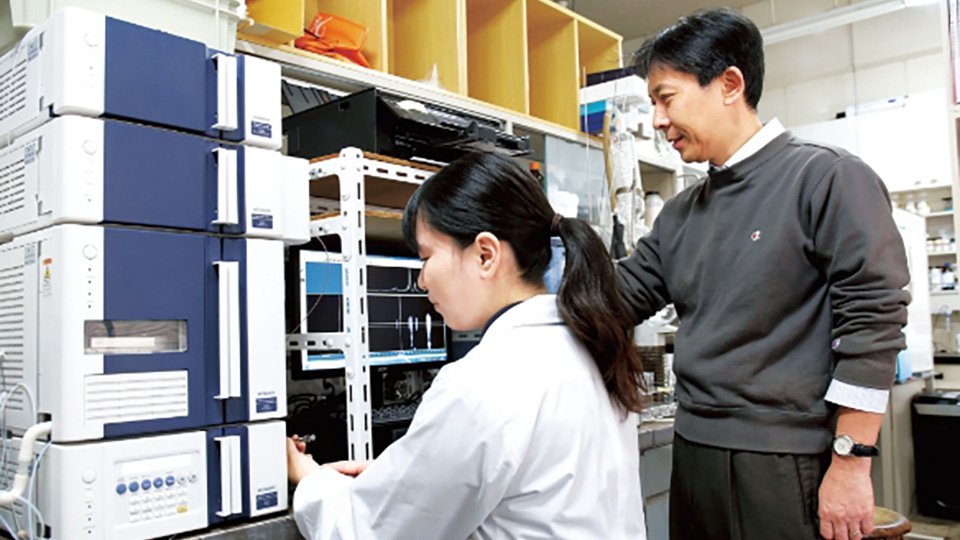
Fourth year: Finishing graduation research that will be useful after employment
Students complete their graduation research as the culmination of their studies. The knowledge and capabilities acquired through the graduation research will be useful in fields such as food development and food analysis.
Class introduction
Basic Experiments in Food and Nutritional Sciences IB |First year
Learn theory through lectures, experience it through experiments. The more theory and experience are combined, the more ability you will have.
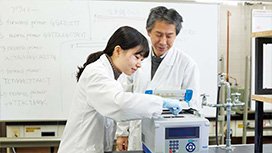
Professor
Food functional science, food analysis
Experiments in food science begin in the first year. In the "Basic Experiments in Food and Nutritional Science IB,” students experiment what they have learned in the food and analytical classes to gain an experiential understanding of theory. In addition, students also learning experimental methods and how to use laboratory equipment. By actively participating in experiments, students are able to understand what they have learned in class through actual experiments.
Faculty member introduction
Faculty members with a wide range of specialties provide education.





